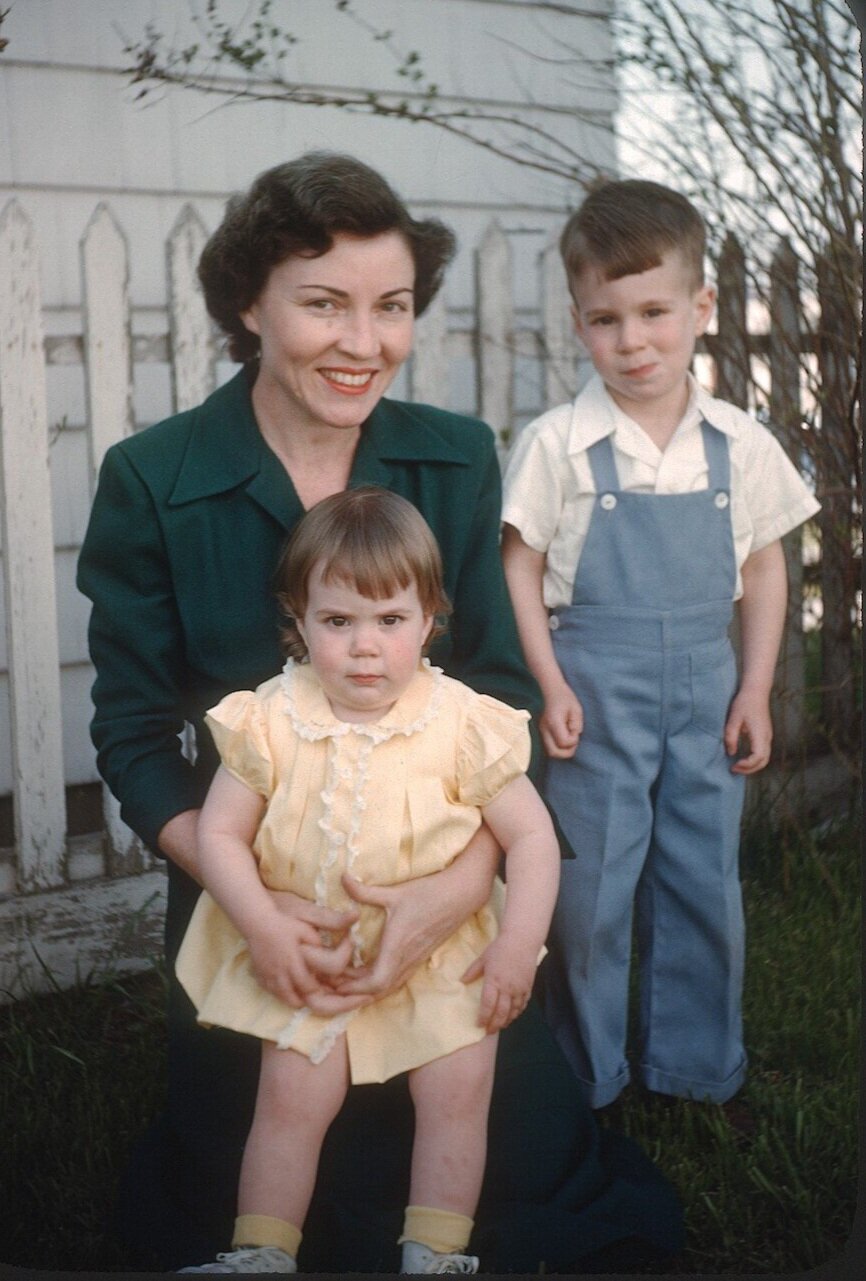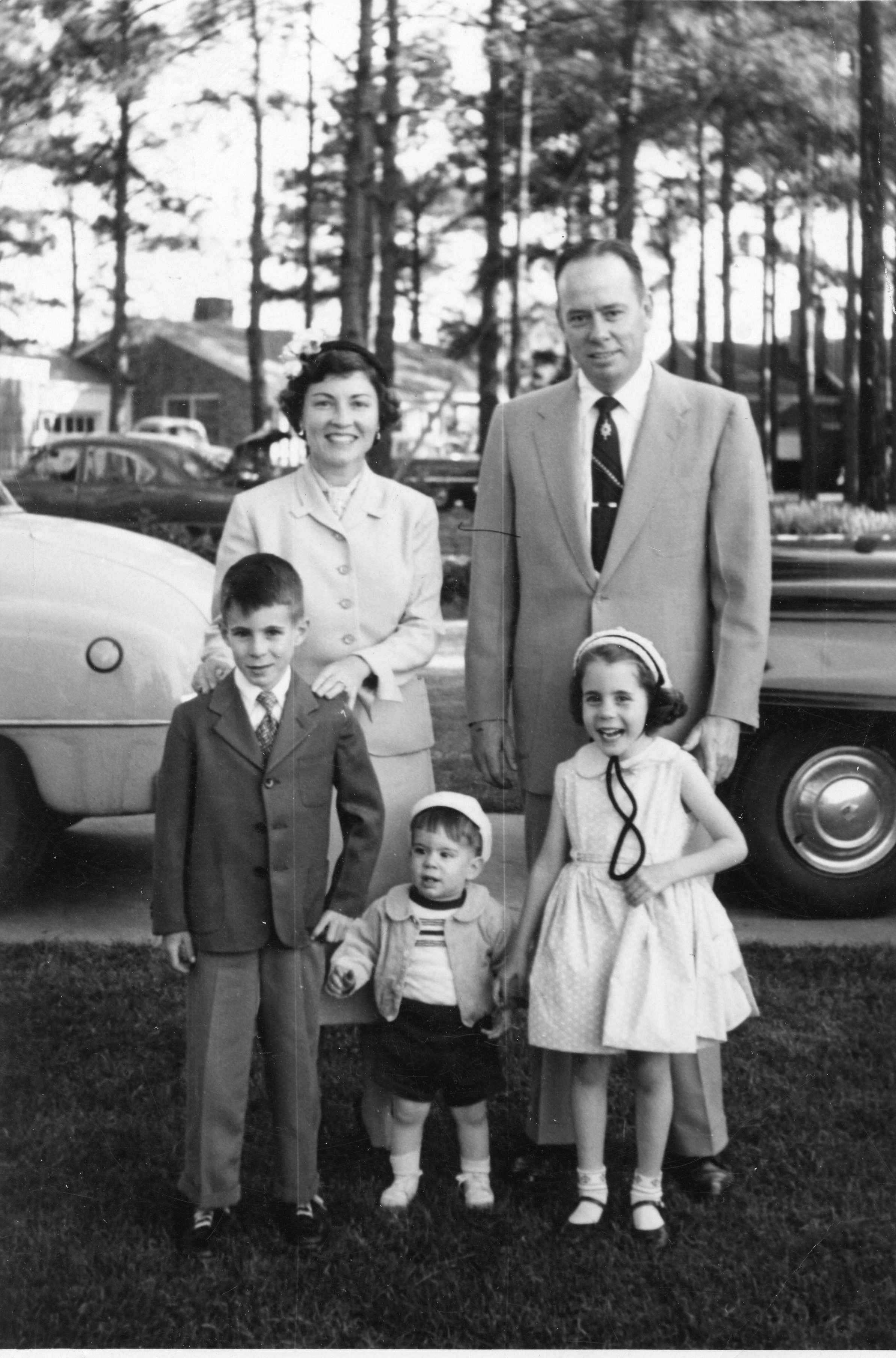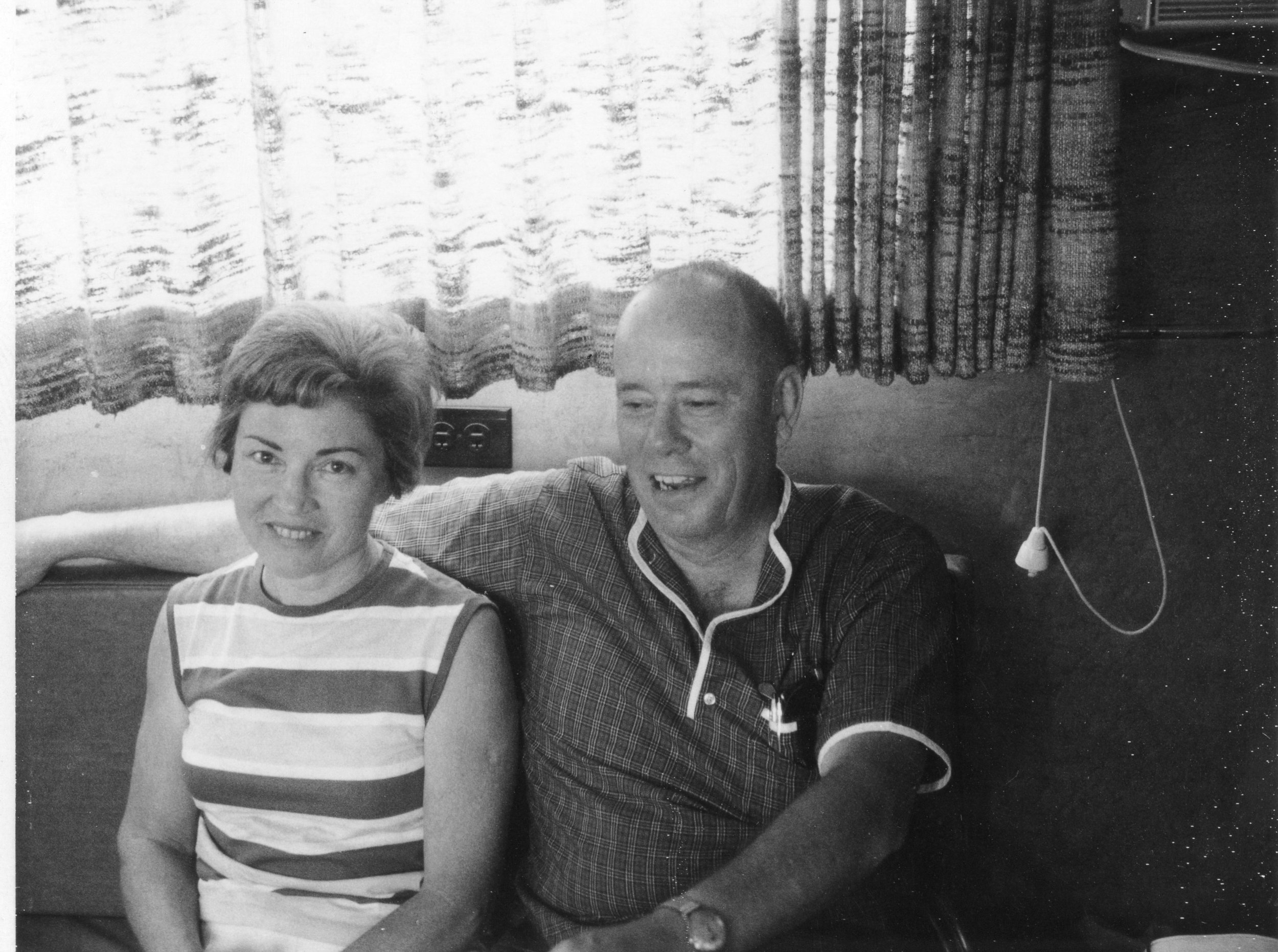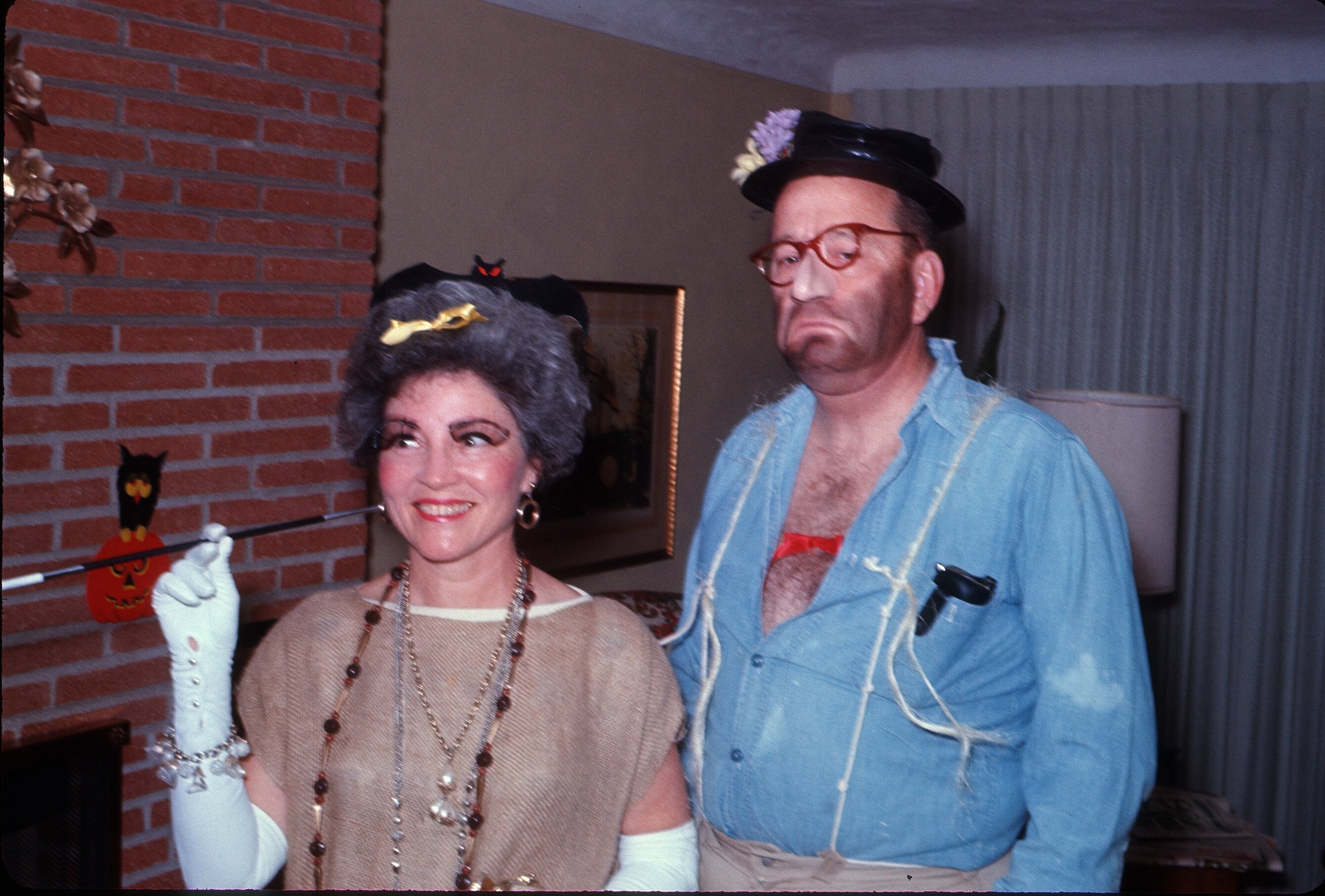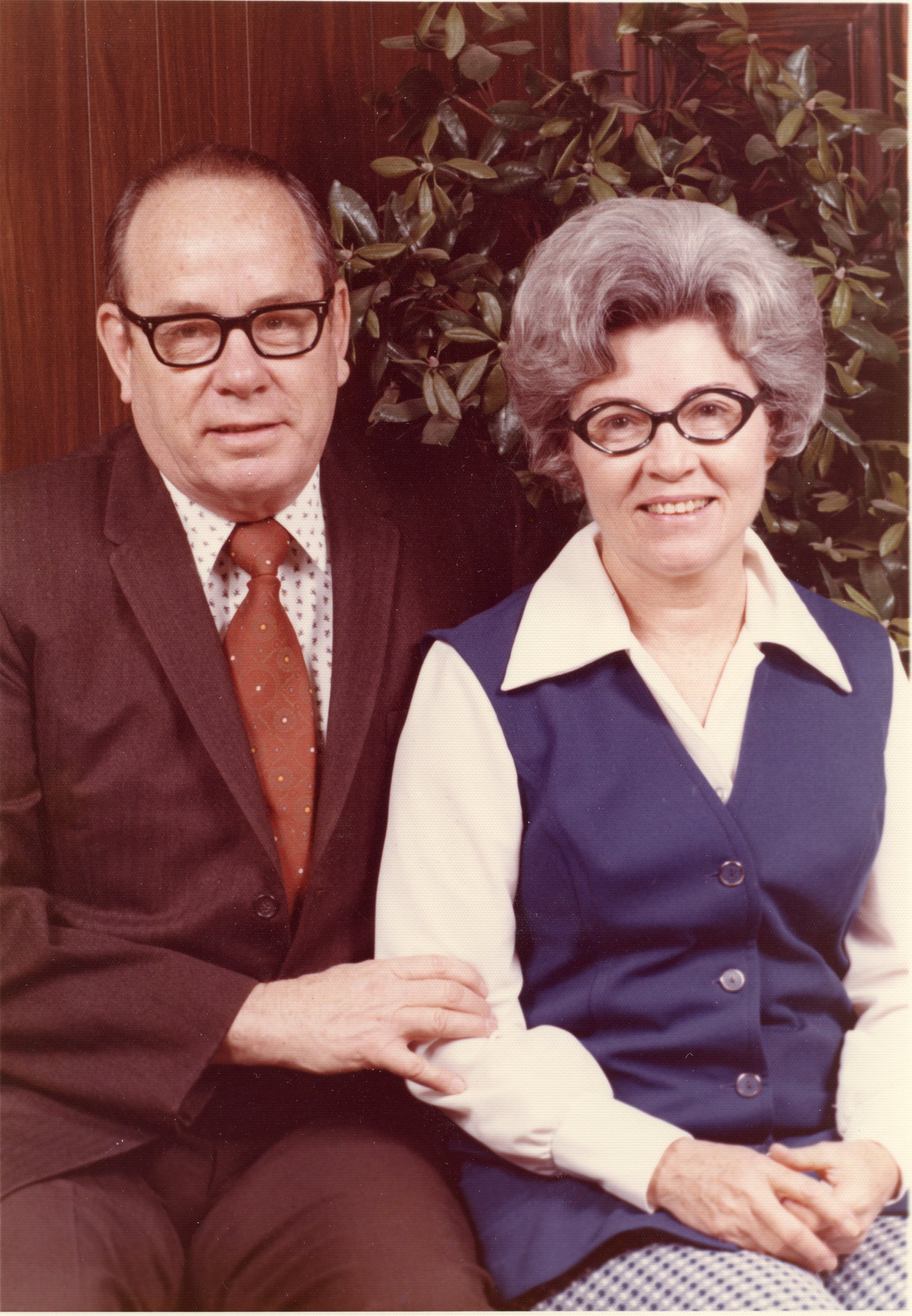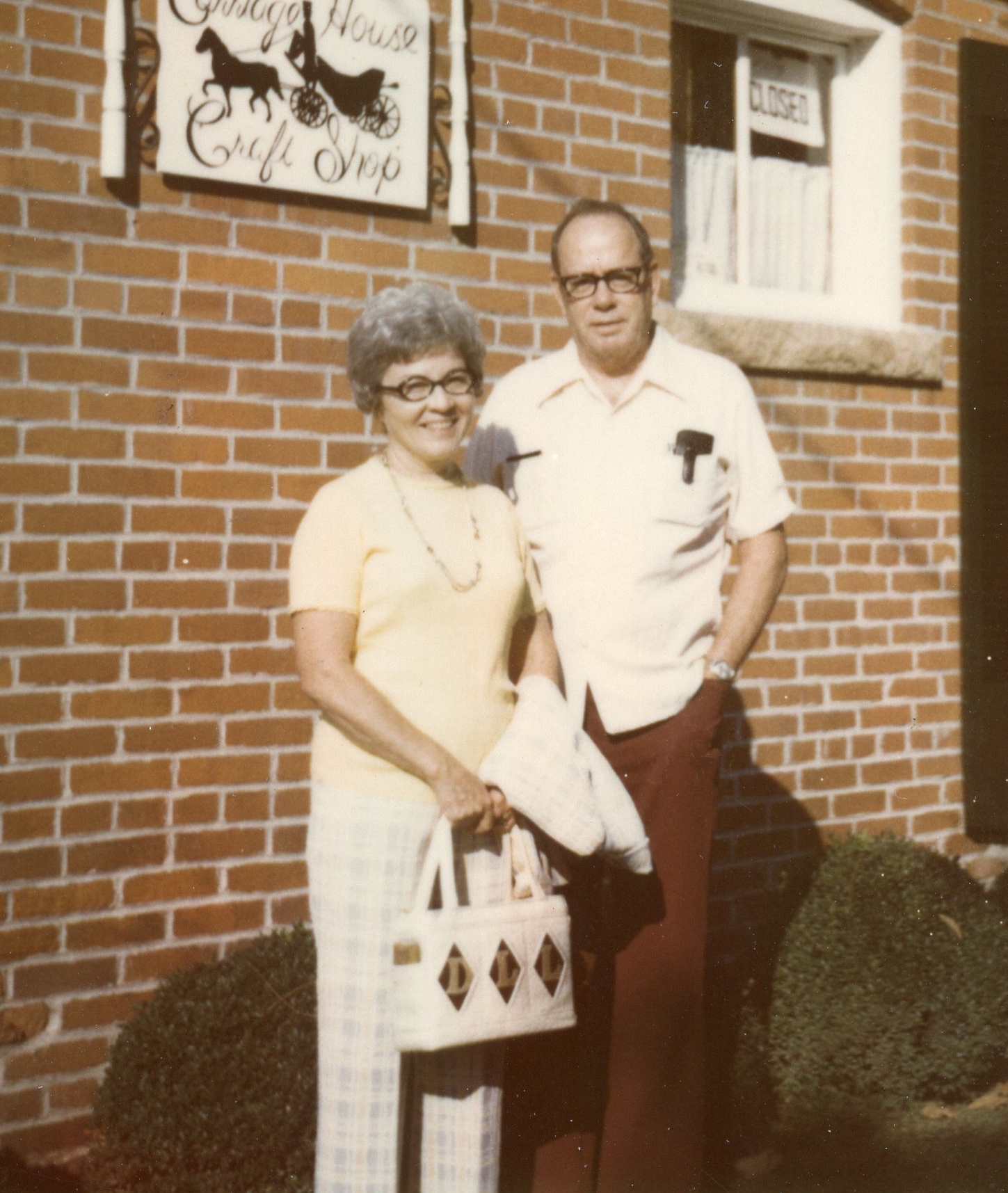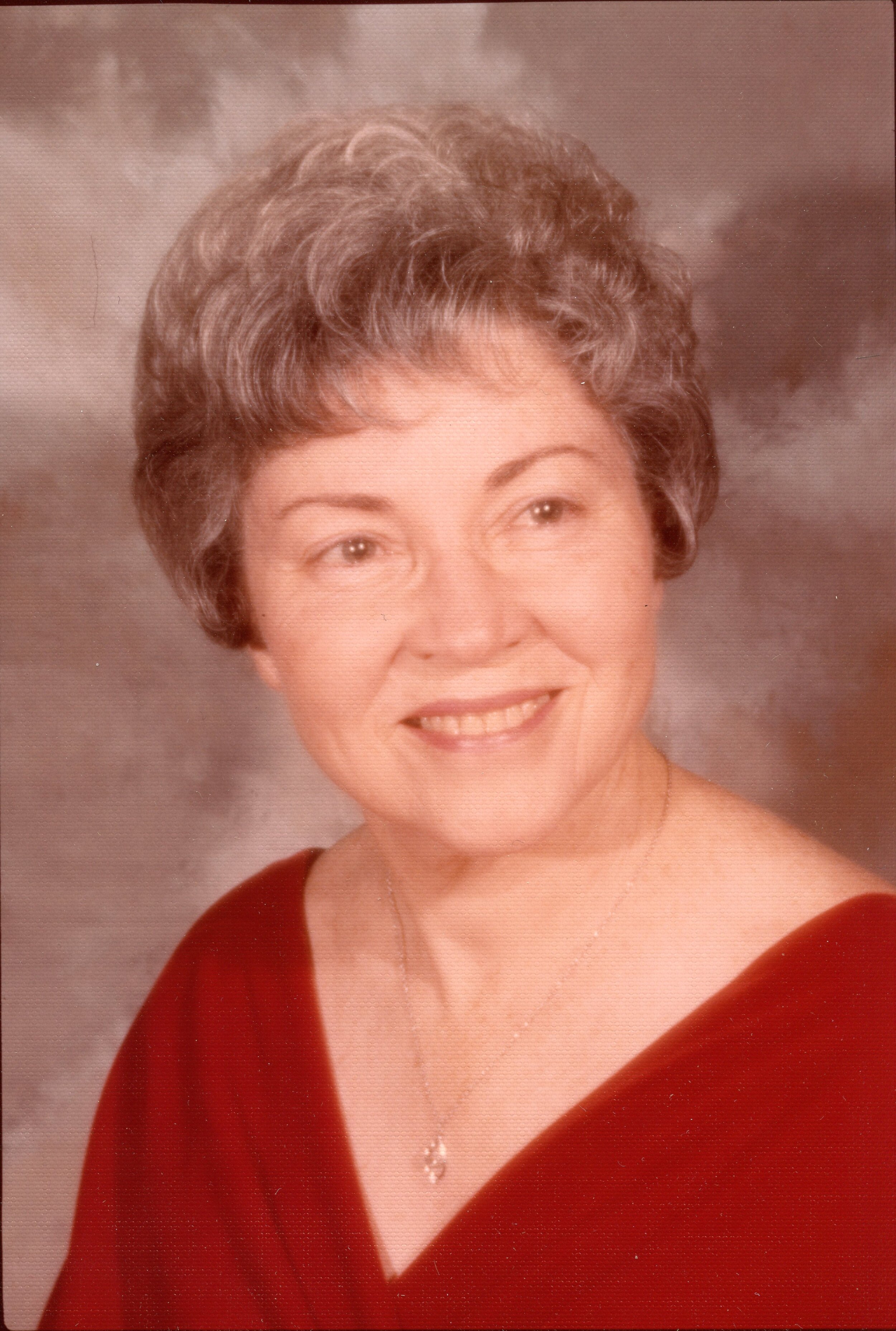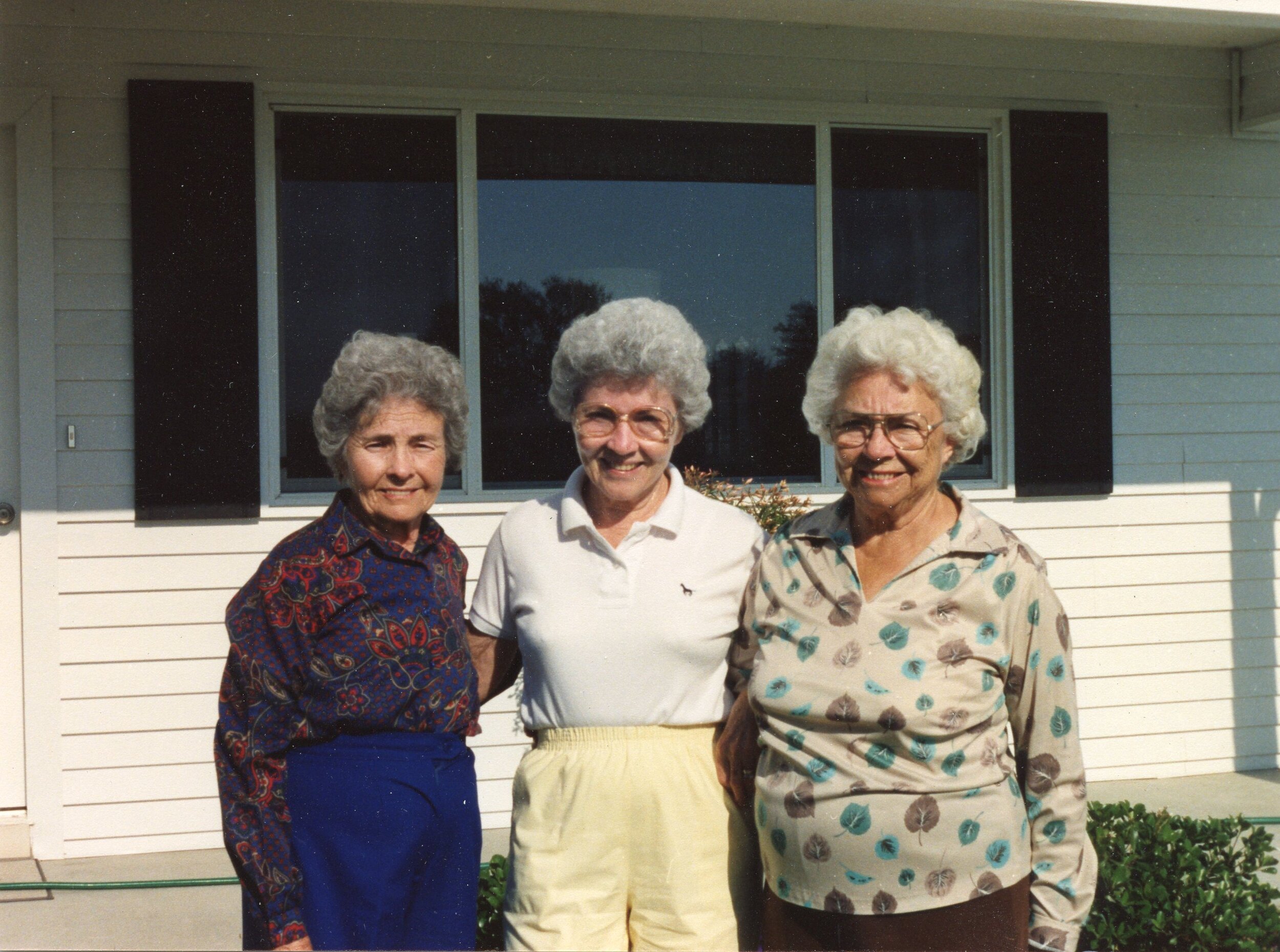Early Years
On October 3, 1913, Dorothy Lillian Mullen was born in Tie Plant, Mississippi, a small suburb of Grenada. Her parents were Walsey and Lillian Mullen; she was their fifth child and third daughter. Among her siblings were Maxwell (7), David (6) and Mary Virginia (4) and Nellie (2).
The war had been escalating in Europe, but President Woodrow Wilson declared that the United States remain "impartial in thought as well as in action.” In November of 1914, President Wilson won re-election under the slogan "He kept us out of the war", and yet the following spring the United States declared war on Germany, joining the allies in World War I and forever changing America's relationship with the world.
It was around 1916 that the Mullen family moved to Poplar Grove, Arkansas, about ten miles west of Lexa. Walsey and the boys first made the trip by buggy with their horse, Fleet, and her colt. Later, the family’s farm goods were shipped by train, along with Lillian and her three very young daughters. Walsey’s brother, Frank Mullen, had a home in Lexa, where he ran a store, and this is where the family stayed until their home was ready.
Their farmhouse was out in the country next to Big Creek, about 12 miles west of Helena. There was, what the kids used to call, a “big gate” leading out to the front property of the house, with large oak trees in which Nellie and Dorothy would play. There was a large porch on the front of the house that wrapped all the way around. Instead of a breezeway at the entrance, as was so common in those days, their home was closed in, with a bedroom to each side of the entry. On the right, Walsey and Lillian’s room. To the left, two additional bedrooms for the children. Further along was a dining room with the kitchen off of that. The home also had an earthen root cellar where Lillian would store all of her canning, potatoes, and other necessities for the winter, infusing them with a warm, earthy smell that Dorothy would remember all her years.
Dorothy’s grandmother and grandfather Cowan (Lillian’s parents), lived in a small house close to the family, and her grandfather ran his blacksmith shop from their farm. He took care of all the harnesses, wheels, cultivator parts and other farm necessities. It was a blessing to have family so close to them, and Dorothy loved her Aunts Frank and Marion, who also lived with them. Walsey’s brothers would come out on to the farm on Sundays and they’d round up some of the farm chickens for a nice fried chicken dinner. On the days they wanted to splurge for a real treat, they would go into town to get some ice and make homemade ice cream.
The children walked about three miles from their farm to the local schoolhouse in Poplar Grove. When the horses weren’t in use on the farm, the children could ride them to school, where there was an area for them to be tethered, fed and watered while the kids were educated. Dorothy remembers another set of siblings that they went to school with, and a feud they had between them. The neighbor kids would throw rocks at their horses to try and spook them and throw the kids. Her scrappy brother David was the one to take them on. He wouldn’t back down from a buzzsaw.
The children spent summers running around the farm, playing hopscotch and climbing trees. Dorothy and Nellie would run into the corn fields and make baby dolls out of the ears of corn. When all of the summer crops came in, the family would go to Indian Bay and camp out for a week at a time. The men would all catch a fish dinner and it was a great time had by all. Dorothy and Nellie would stay in their own little pup tent, which they would have to tie closed at night; Nellie was a sleepwalker, and everyone feared she’d walk right into the bay while they slept.
Every Sunday the family would attend the Methodist church, where Lillian played piano. They would all gather in the front row and would often have to wake up David when the service was over and it was time to leave. Of course the children all had their chores, such as dishes, ironing and sometimes milking the cows.
Sometimes Walsey and Lillian would make a trip into Helena for necessities, leaving the kids at the farm. There, they were left to their own devices and found their own forms of mischief. Dorothy recalled David pulling the family pistol down from the fireplace mantle. He was playing, pointing it at various items in the living room, and finally, took aim at the clock on the mantle and pulled the trigger, sending parts flying in all directions. Lillian and Walsey were at the “big gate” when they heard the shot, and came running into the house, thankfully to find everyone safe. Although she couldn’t recall exactly what happened next, she imagined “it was bad for his backside, because they believed in laying on the strap.”
The country saw a mandatory sobering in January of 1919 with the ratification of the 18th Amendment. Suddenly, the sale and consumption of alcoholic beverages was legally prohibited throughout the United States. Underground (and not so underground) bootleggers aside, this would remain official law for the next 14 years. Dorothy’s family didn’t keep alcohol in the home, whether by personal choice, or as a result of prohibition. The only time Dorothy could remember her father imbibing was the occasional eggnog during the holidays.
During Christmastime, Walsey would take the kids into town and give them each a quarter to buy whatever they wanted. Dorothy would run through the dime store, looking at every item, debating, and finally end up going home with her quarter because she couldn’t find anything worth spending it on.
It was a time of great progress, but also a tumultuous time; race riots were breaking out throughout the country, dubbing the season the American Red Summer of 1919.
On September 30, 1919, what became known as the Elaine Massacre resulted in the death of hundreds of black residents, five white men, and the arrests of near 300 more. It all began during a disgruntled African-American sharecroppers meeting in the Hoop Spur church. They were protesting unfair low wages from landowners, and had enlisted the help of a white attorney from little rock to express their need for a fair wage. A shootout began in front of the church between armed black guards and a group of local white men in a parked car out front and quickly escalated into a far larger mob. The governor called for 500 soldiers from nearby Camp Pike to quell the uprising, with orders to “shoot to kill any negro who refused to surrender immediately.” Local vigil ante citizens joined in the fray and a dark history was written.
Twelve black men from the incident faced trial for murder and were immediately sentenced to death row. The NAACP launched a series of appeals that drug on for years, claiming their right to due process had been violated, until finally reaching the U.S. Supreme Court. Ultimately, the court agreed, a drastic change from their former hands-off approach to previous such events. It later became viewed as one of the first events in the American Civil Rights movement. Although Dorothy was only 5 years old at the time, it is nearly impossible to imagine that this historical event didn’t have some great impact on the Mullen family, who were residing at the very epicenter of the violence.
In January of 1920, the Treaty of Versailles took effect, officially ending the war. In August of that same year, Dorothy’s younger brother, Robert Nicholas was born. Dorothy was 7 years old.
Ten days later, some 26 million other women throughout the United States, was finally given the right to vote as the 19th Amendment granted universal women's suffrage.
The family lived in their farmhouse for several years before moving further east into the town of Barton. There, they lived off of what they called the “hard road”, their version of the highway. The children went to school at a little country school that went up through the eighth grade. Walsey and Lillian were determined for their children to have a decent high school education, so when Maxwell, the eldest of her siblings, was ready to attend high school, he went to stay with Lillian’s sister, Aunt Frank, in Helena and attended the high school there.
1920's
In the summer of 1921 the Centennial Road Law was signed, leading to the construction of the first modern system of Missouri highways.
In August of 1923, President Harding succumbs to a fatal illness and his office is replaced by Vice President Calvin Coolidge.
Around this time, as the other children started getting to high school age, the family sold their farmhouse and moved closer into the newly incorporated town of West Helena. This particular home was in more of a neighborhood, at the end of the street on the north side, and the family made quite the stir with the neighbors. Everyone wondered what the neighborhood was coming to with this country family and all of their kids moving in. Eventually, the Mullens won their neighbors over and became good friends with them - especially those across the street from them. Meanwhile, Walsey used the land behind their home to start a dairy farm. They used large cans and a funnel separator to remove the cream from the milk before bottling.
As a young girl, Dorothy remembers asking her father where Fleet, their beloved mare, got her colt. Walsey, not missing a beat, points out into the field behind their house and says, “Out there in the pasture, there’s an old stump. And you go and you look, and there’s a big old hole there around that stump. And that’s where she found the colt.” In her older years, Dorothy would laugh at that memory, thinking of how naive she was to have believed him.
Eventually, Walsey traded in his farming for a job in the hardwood timber business, an industry that had sustained Helena up until this point in time. Early hardwood and lumber plants in town included the Helena Veneer Company, the Org Chair Company, Upton & Alger, the Southwestern Wagon Company, and the Dennison Sawmill. He owned horses and mules, and would go out and source large tracks of timber, haul them in to the nearest station, where they would then be transported by railroad. He bought tracts of land, walked through and surveyed the timber potential, and sometimes even just turned around and sold again immediately for great profits. The family prospered. Walsey would come home with bags of cash, dump it out on the floor and let all the kids count it. Instead of shopping in Helena, Walsey would take Lillian all the way to the big city of Memphis. They even brought home gifts for the kids, and Dorothy got a nice new coats with a fur collar.
It was from one of these city trips that Lillian returned with her long hair cut into a fashionable bob. Dorothy took one look at her and burst into tears; Mom just wasn’t the same without her signature hair knot at the nape of her neck. Who was this new woman?
During this time of prosperity, Walsey and his brother Herbert invested in some land off of the highway between West Helena and Barton where they began building brick homes for each family. Walsey bought a Buick, quite a grand car in comparison to the Ford Model-T they previously owned. The Buick was the car that Dorothy learned to drive at 14 years old.
Then, tragedy struck.
The spring of 1927 brought in torrential rains to the area. Rivers and creeks began to flood, levees one after another broke, and the Mississippi grew to over 60 miles wide in sections. The Great Flood hit Arkansas the hardest with 14 percent of the state left under water. The entire infrastructure of Helena-West Helena was damaged, causing them to forfeit their place as the nation’s lumber market. Refugee camps were set up throughout the state, including in West Helena. President Herbert Hoover later dubbed it the “America’s greatest peacetime disaster,” claiming “the disaster felt by Arkansas farmers, planters and residents of river lowlands was of epic proportions.”
In the spring of 1928, Dorothy’s mother became seriously ill with uterine cancer. She was treated at Memphis with radium implants. It was a procedure still in the trial phases, and resulted in internal damage to Lillian, leading to peritonitis from which she did not recover. Walsey took the children to the Memphis hospital, and each was given their own private time to say their goodbyes to their mother. Dorothy was 14 years old.
Under difficult circumstances, the Mullen family, moved into their newly constructed home. It had a living room, dining room, three bedrooms, and a partial basement. Dorothy began attending Helena High School.
Then, on October 29, 1929, the stock market plummeted, beginning what would later be known as the Great American Depression. The lumber market tanked, and difficult times turned dire for the Mullen family. Maxwell, David and Mary Virginia had gone off to college, and Walsey did what he could to make ends meet for the three children he had remaining at home. Unfortunately, it wasn’t long before they lost the house Walsey had worked so hard to build for his family.
1930's
Around 1931, Dorothy and her family moved in with her grandma and grandpa Cowan back in West Helena. Walsey took a job at a local mill, making just enough to keep the kids fed. Dorothy began attending West Helena High School.
Dorothy had grown into a very pretty young lady. She won school superlatives several times for being the “prettiest girl” in class. And she always sang, along with her other siblings.
Around this time, 17 year-old Dorothy started dating a 22 year-old man named Bill Pope. He worked at one of the cotton mills in Helena, processing cotton oil. He had his own car with a rumble seat and they had fun running around town with another couple, going to the movies and such. They dated one another for six years, until he decided to go back to school in Knoxville, and they ended things.
At West Helena, Dorothy had a teacher named Mrs. Warfield. Dorothy was an average student, but in order to graduate, each student had to have completed two years of Latin. When Dorothy failed the first year, Mrs. Warfield passed her anyway, encouraging her on to her second year so that she could get the necessary credits to graduate. It was her encouragement that allowed Dorothy to continue on.
In 1932, Dorothy graduated from West Helena High School. She wrote to her brother David who was working out of state, to ask him for some money so that she could buy material to make a dress for graduation. He sent her $35, which was a lot of money at the time.
That fall, President Franklin D. Roosevelt enters office with a landslide victory.
In December of 1933, when Dorothy was 20 years old, prohibition officially ended. By then, Nellie had also gotten married to a state fireman named Palmer Lewis, and Dorothy was spending much of her time living with them in Helena. There was a local convent that gave business courses, and Dorothy attended for a time. She worked when she could with the WPA. During the breaks in projects while waiting for government appropriations, Dorothy would go to visit her sister Mary Virginia and husband Earl, who were living in Moberly, Missouri at the time.
It was on one of these visits that Dorothy caught the eye of a young neighborhood man across the street. Jack Lankford would sit out on the porch for hours just to catch a glimpse of her, until he was eventually able to find opportunity to introduce himself. When it was time for her to go back home, Jack made sure to go visit her as well. His father worked for the railroad, and he took advantage of his family railroad discount for visits, and they began dating.
In February of 1934, Dorothy’s father, Walsey, married Mary Carruth, a friend of his who had a farm out near Poplar Grove where the family had originally lived.
Dorothy got an office job with the WPA on a dam project in Marianna, Arkansas. During this project they built a dam on the Marianna-Helena county line and created the state park, employing many people and helping to boost the economy. During this time, she stayed with her Aunt Marion and husband Clifford. It was a risky decision, as Marion had contracted tuberculosis, which was extremely contagious, putting Dorothy at risk. She stayed with them several months before moving on to board with a young married couple where she rented a room and took her meals with them.
In 1937, Jack's family was living in the big city of St. Louis. Dorothy had just so happened to be in between jobs, and Jack and his sister Kathleen drove down to visit Dorothy in Jack’s new car. It didn't take much for them to convince her to relocate to St. Louis as well.
Dorothy stayed with her sister-in-law’s (David’s wife, Margaret) parents, Mr. and Mrs. Courtney, who lived in a three-story brick home in western part of the city. Dorothy got a job at a traveler’s insurance company downtown in the Pierce building, and took the bus to work every day. Her free time was spent with Jack.
In the fall of 1939, the United States once again declared its neutrality in the European war.
1940's
In the summer of 1940, Jack and Dorothy applied for a marriage license, and on July 16, 1940 they were married in St. Margaret's Catholic church. The modest wedding party was made up of Jack's younger sister, Kathleen, and a friend, Otto Rickey.
The ceremony was followed by an intimate breakfast at the Rose Bowl with their immediate families, and from there it was on to Miami, Florida, where they spent their honeymoon.
Upon their return, Jack and Dorothy moved into their first home together at 2112 Maury Street. Around this time, Jack began his work within the Monsanto laboratory on 2nd Street in Soulard.
In September of 1940, amidst an escalating situation in Europe, the U.S. Congress enacted the first peacetime conscription draft. Jack was 26 years old - right at the peak draft age, and on October 16th Jack made his way up to the YMCA on South Grand Avenue and filled out his draft card.
A month later, F.D.R. wins his third presidential election, becoming the first man to hold office for three (and later four) terms.
Within their first year of marriage, Jack was transferred to Norfolk, Virginia as production supervisor with Monsanto, where he became responsible for safety activities there. They were delighted.
They lived at 1907 St. Denis Avenue. The plant where Jack worked was a small one, and all of the couples from the plant (about twelve couples) grew very close.
Then news hit of the terrifying and tragic Japanese attack on Pearl Harbor, and the U.S. declaration of war that followed.
It may have been war time, but the Lankfords made the most of it, enjoying themselves with the simpler things life had to offer. Gasoline was rationed, so they bought bicycles, and along with the other couples would all ride out as far as Virginia Beach for group picnics.
On April 12, 1945, at the height of the war, President Roosevelt died suddenly, and Vice President Harry S. Truman assumed the role of President. This must have produced an inkling of pride for Jack and his family, Truman being from his very own home state of Missouri. Four months later Truman issued orders for the use of the atomic bomb on both Hiroshima and Nagasaki, leading to the surrender of the Japanese delegation and the end of WWII.
It may have been a time of peace, but the conflict was not over. Instead, a new period of Cold War began and fear of the communist threat began to sneak into the American psyche.
May 30, 1947, Dorothy gave birth to their first child - a baby boy, John Carlisle, Jr. She was thirty-three years old. The couple was so excited to tell everyone, but couldn’t get a hold of anyone. They were all out celebrating Memorial Day.
Just over a year later, in the fall of 1948, their second child, a daughter, was born. She was named Suzanne Kathleen.
1950's
The summer of 1950 saw war once again - this time in Korea. It lasted three years, but is often termed the "Forgotten War". In addition, the "Red Scare" was really starting to intensify.
By 1951, Jack had been promoted to Safety Director. The family had moved to 405 East Sewell's Point Road.
The election of Dwight D. Eisenhower was another landslide in 1952.
In January of 1953, when Dorothy was 40 years old, their youngest child was born. They named him James David.
That same year, the first color televisions go on sale. NBC was the only network to broadcast in color at the time, and the sets were very expensive, so they didn't really gain household popularity until the early 1960's.
By 1954, the family had moved to 216 Forsythe.
May of 1955 brought the integration of public schools in the United States with "deliberate speed", and January of that same year Rosa Parks infamously refused to give up her seat to a white man on the public bus. The next several years would be marked by civil rights protests that would change the face of American society as everyone up until this point had known it.
In 1956, the Monsanto Norfolk Plant operations closed down and Jack and family all transferred back to St. Louis, where Stella had helped Jack arrange a home for his family at 705 Buckley Road in Lemay. Jack resumed his work for Monsanto at the Krummrich Plant as a safety engineer.
1960's
In November of 1960, the United States bid farewell to President Eisenhower and welcomed John F. Kennedy to the White House.
The fall of 1962 brought about the Cuban Missile Crisis, a conflict which lasted a total of 38 harrowing days in which many believed the Cold War might actually break into armed conflict.
In May of 1963, Jack's mother, Stella, suffered a fatal heart attack. Not long after, Jack's widowed father moved in with them.
That summer, the Civil Rights movement raged on with a march on Washington D.C. and Dr. Martin Luther King's iconic "I Have a Dream" speech.
The tumultuous era continued with the assassination of President Kennedy on November 22, 1963. It was an event that would shake the nation to its very core.
March of 1965 brought about the decision to send American troops to the war in Vietnam.
That October, the great Gateway Arch of St. Louis was completed.
In April of 1967, Jack's father was admitted to the hospital where he remained in critical condition for six weeks. On May 12th, John passed away.
On April 4, 1968, another devastating assassination rocked the United States - that of Martin Luther King. Race riots were rampant in Kansas City in response to his death. Almost two months later to the day, presidential candidate Robert F. Kennedy is shot at a campaign victory celebration. He died one day later.
That November, Richard M. Nixon took to the White House.
It was around this time that Jack retired from Monsanto after 33 years of employment.
In the summer of 1969, millions sat around their living room televisions and witnessed the unimaginable: Neil Armstrong's first steps on the moon.
1970's
Between 1970 and 1971, all three of Dorothy’s children were married, and it was soon after that the first of six grandchildren followed.
In1972, Americans witnessed the Watergate crisis as well as the re-election of President Nixon, and the beginning of his downfall. His impeachment proceedings took place throughout 1974, and ended with his resignation on August 9th.
In January of 1974, Dorothy began working at Alexian Brothers Hospital in an administration position.
In November of 1976, Gerald Ford conceded the Presidential election to Jimmy Carter.
In May of 1977, the talk of the people was the release of the movie Star Wars, the highest grossing film to date.
1980's
In January of 1980, Dorothy was transferred from Administration to the Infection Control department at Alexian Brothers. She worked as supervisor of housekeeping, a very difficult position that had her on her feet covering the floors and checking rooms from 7 a.m. until 3 p.m. every day. It wasn’t easy for 66-year-old Dorothy, and was probably the least favorite job she’d ever had.
In November of 1980, Ronald Reagan is elected the 40th president of the United States. Three months later, he is shot in the chest during a failed assassination attempt while walking to his limousine.
Throughout the 80's, Dorothy and Jack both volunteered at Alexian Brothers Hospital Auxiliary where they assisted in local health screenings, manned the gift shop.
In January of 1986, the Challenger Space Shuttle exploded after lift off.
Dorothy served in various positions, including President of the Alexian Retiree Organization, where they assisted in things such as blood banks, health fairs, bake sales, and the bus service during the V.P. Fair.
On October 19, 1987, the stock market crash known as Black Monday occurred with a historical 22.6% drop in one day.
In November of 1988, George H.W. Bush was elected President of the United States, and one year later, the Berlin Wall came down after thirty-eight years. The overarching message to the world at large was that the Cold War was finally coming to an end.
1990’s
In the summer of 1990, Dorothy and Jack celebrated their 50th wedding anniversary with all of their family and friends.
In August of 1990, Iraq invaded Kuwait, thus beginning the involvement of the U.S. in the Gulf War. Operation Desert Storm began in January of 1991 with air strikes against Iraq and in February of the following year a cease fire is declared, ending the war.
November of 1992 saw the election of Democratic President Bill Clinton.
February of 1993 was one of many tragic deaths with both the bombing of the World Trade Center by Islamic terrorists as well as the 51-day standoff in Waco, Texas of the Branch Davidian cult leader David Koresh. Closer to home, the Great Flood of 1993 swept over the midwest, devastating many parts of St. Louis.
Then, in the summer of 1994, there was the O.J. Simpson trial, one of the highest profile murder cases in the nation's history. Americans everywhere were glued to their televisions as live news covered the infamous high-speed white Bronco chase.
In the spring of 1995, anarchists Timothy McVeigh and Terry Nichols detonate a bomb outside of a federal building in Oklahoma City in yet another domestic terrorism attack.
July of 1996 big news was announced in the shape of a sheep. Dolly was the first mammal to be successfully cloned, beginning a strong debate on both animal rights ethics and the potential ability to do the same on humans.
In the summer of 1997, Jack was diagnosed with metastatic lung cancer. His health declined very rapidly from this point on, and the whole family rallied around to care for him and ensure he was able to remain in the comfort of his own home during this time. In the early morning hours of December 4th, Jack passed away at the age of 83.
His funeral was held at St. Matthias Church, and he was buried at Saints Peter and Paul Cemetery.
2000’s
After Jack’s death, Dorothy sold the Buckley family home and moved in with her daughter, Sue, in Columbia, Missouri.
1. Chillicothe Morning Constitution. 26 June 1915. Newspapers.com digital image. Newspapers.com : 2017. 2. The Chillicothe Constitution-Tribune. 4 December 1916. Newspapers.com digital image. www.newspapers.com : 2016. 3. "In Honor of Fifth Birthday." Moberly Democrat. 5 September 1920. Newspapers.com digital image. www.newspapers.com : 2017. 4. "Lankford, John C. "Jack"." St. Louis Post-Disp atch. 7 December 1997. Online archives. Newspapers.com : 2016. "St. Mary's School to Close Sunday." Moberly Weekly Monitor. 23 May 1929. Newspapers.com diigital image. www.newspapers.com : 2017. 5. "Theatre Manager Entertains Ad Club." Moberly Monitor-Index. 20 June 1929. Digital image. Newspapers.com : 2017. 6. Ancestry.com. 1920 United States Federal Census. Provo, UT, USA: Ancestry.com Operations, Inc., 2010. 7. Ancestry.com. 1930 United States Federal Census. Provo, UT, USA: Ancestry.com Operations Inc, 2002. 8. Ancestry.com. 1940 United States Federal Census. Provo, UT, USA: Ancestry.com Operations, Inc., 2012. 9. Ancestry.com. U.S. City Directories, 1822-1995. Provo, UT, USA: Ancestry.com Operations, Inc., 2011. 10. Ancestry.com. U.S. Public Records Index, 1950-1993, Volume 1. Provo, UT, USA: Ancestry.com Operations, Inc., 2010. 11. Ancestry.com. U.S., Find A Grave Index, 1600s-Current. Provo, UT, USA: Ancestry.com Operations, Inc., 2012. 12. Ancestry.com. U.S., School Yearbooks, 1880-2013. Provo, UT, USA: Ancestry.com Operations, Inc., 2010. 13. Ancestry.com. U.S., Social Security Applications and Claims Index, 1936-2007. Provo, UT, USA: Ancestry.com Operations, Inc., 2015. 14. Ancestry.com. U.S., Social Security Death Index, 1935-2014. Provo, UT, USA: Ancestry.com Operations Inc, 2011. 15. Missouri Marriage License Records Index. , . 16. Certificate of Completion. Certificate. March 1965. Digital image of the original, 2016. By Liza N. Reid. Privately held by James D. Lankford Sr., [ADDRESS FOR PRIVATE USE], St. Louis, MO. 2016. 17. Dedication of Service Award. Award. 19 March 1966. Digital image of the original, 2016. By Liza N. Reid. Privately held by James D. Lankford Sr., [ADDRESS FOR PRIVATE USE], St. Louis, MO. 2016. 18. Lankford, Jack. High School Graduation. 19 May 1933. Privately held by James David Lankford Sr., [ADDRESS FOR PRIVATE USE], St. Louis, Missouri, USA. 2016. 19. Lankford, James D. 1971. . Mehlville Senior High School, St. Louis, Missouri. Privately held by Mehlville Senior High School, [ADDRESS FOR PRIVATE USE], St. Louis, Missouri 63125. 2017. 20. Missouri. Death Certificates. The Department of Health & Senior Services, Jefferson City, Missouri. 21. Missouri. Jefferson. Bureau of Vital Records, Missouri Department of Health. Birth Registrations. 22. Reid, Liza N. Letter. 14 March 1962. Privately held by James David Lankford Sr., [ADDRESS FOR PRIVATE USE], Fenton, Missouri 63026. 2016. 23. Sales Analysis Institute Certificate. Certificate. 24 September 1963. Digital copy of the original, 2016. By Liza N. Reid. Privately held by James D. Lankford Sr., [ADDRESS FOR PRIVATE USE], St. Louis, MO. 2016. 24. Social Security Administration. Application for Account Numbers, Form SS-5. Social Security Administration, . 25. Typed notes. Typed note. unknown. Photocopy held privately held by Liza Reid, [ADDRESS FOR PRIVATE USE], Labadie, Missouri, USA. 2017.





